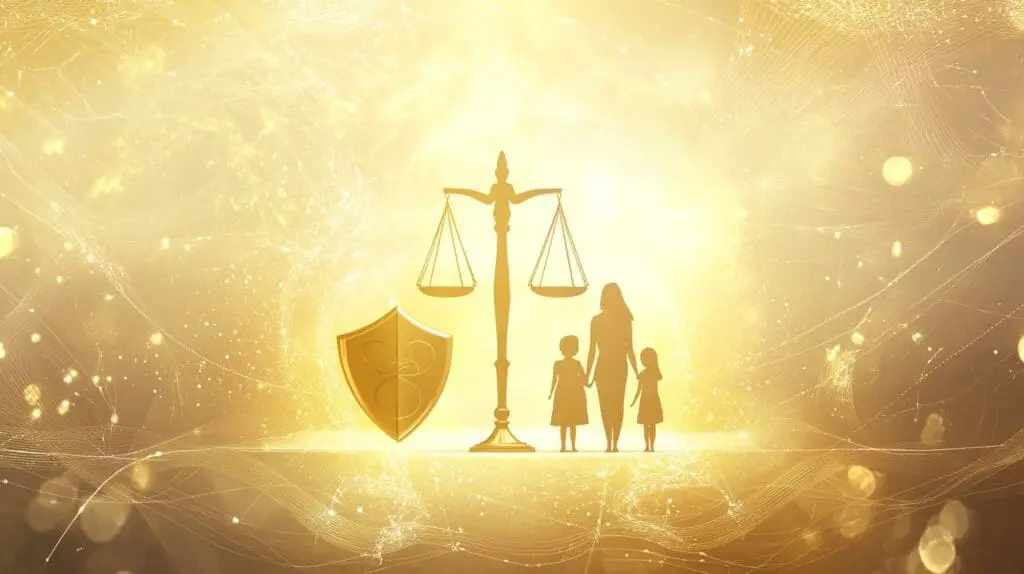Dec 19, 2024

Family lawyers often deal with deeply personal and complex issues such as divorce, custody, and financial disputes. One area that frequently intersects with family law but may go unnoticed is consumer protection. Financial abuse within marriages or domestic partnerships can lead to significant financial harm for the victim, including unauthorized transfers, fraudulent credit card charges, and credit reporting errors. Yet, many family law attorneys are unaware of potentially game-changing consumer protection statutes that allow their clients to recover unauthorized charges, other damages, attorney’s fees and costs from the financial institutions and/or credit reporting agencies involved. Particularly for victims who are struggling to recover damages and receive other relief from their abusers (which is most victims in our experience), consumer protection statutes can have life-altering, positive impacts. Here are three consumer protection laws every family lawyer should know:
1. Fair Credit Reporting Act (FCRA)
The FCRA governs the accuracy, fairness, and privacy of consumer information in credit reporting. For victims of financial abuse, redressable errors on credit reports often arise when a spouse or partner opens accounts in the victim’s name; makes the victim a co-signor without his or her knowledge, or takes over and uses accounts that were at one-time legitimate accounts belonging to the victim. Under the FCRA, consumers have the right to:
The FCRA also allows for the consumer to add a fraud alert or credit freeze to prevent further misuse of their identity.
Although the FCRA does not, on its face, provide for voiding of the unauthorized account/charges as part of a victim’s recovery under the statute, this is is virtually always part of a succesful resolution of these types of claims, i.e. in addition to a monetary recovery, a successful litigant is typically able to obtain voiding of the disputed account/charges as part of a resolution.
Similarly, although the FCRA does not, on its face, provide a right to the prevailing litigant to have his or her credit report corrected, a successful litigant can expect that the offending items will be removed as part of any settlement.
Family lawyers should be aware that the damages in FCRA cases are not limited to compensation for damage to credit (ideally shown through loan denials or adverse changes to credit card or other loan terms) but can also include emotional distress, and other foreseeable consequences of an improper denial of a victim’s dispute.
In many cases, these remedies can fundamentally alter then landscape for a victim of financial abuse whose significant other has decimated his or her credit. While every case is different, victims who can show real damage to their credit as a result of the credit reporting agencies and banks failing to respond appropriately to a dispute, can be entitled to significant compensation, as well as attorney’s fees and costs.
Family lawyers should be aware of these rights and reach out to a consumer protection lawyer with significant FCRA experience
2. Fair Credit Billing Act (FCBA) (and the Truth-In-Lending Act, Section 1643)
The FCBA and Section 1643 of the Truth In Lending Act offer protections for consumers dealing with unauthorized credit card charges and billing errors. In cases of financial abuse, it’s not uncommon for an abuser to make unauthorized purchases on a victim’s credit card or to open new cards in the victim’s name. The FCBA, along with section 1643 of the Truth in Lending Act,allows consumers to:
Prevailing consumers can obtain statutory damages, actual damages, including not only the amount of the disputed charges, but also emotional distress and other provable harms, as well as attorney’s fees and costs.
Family lawyers should advise clients to closely review their credit card statements and act quickly to dispute any unauthorized charges using the billing dispute address provided by the credit card company, as the FCBA has specific time limits for raising disputes, and requires use of an address designated by the financial institution.
3. Electronic Fund Transfer Act (EFTA)
The EFTA protects consumers from unauthorized electronic transactions, such as debit card purchases, ATM withdrawals, and online transfers. New payment platforms such as Zelle, Paypal, CashApp, etc. are also covered under the EFTA. Victims of spousal and other intimate partner financial abuse may discover that their accounts have been drained through unauthorized transfers. The EFTA provides:
In instances where a family law attorney representing a victim of financial abuse is able to quickly recover the stolen funds from the abuser, that may well be the best option. However, our experience is that in many, many cases, the abuser either doesn’t any longer have the stolen funds (e.g. cases of addiction, overspending, etc.) or puts up stiff resistance in the family court litigation process, which is often made even more protracted due to acrimony and emotion investment of the litigants.
Unlike an abusive estranged spouse or ex-partner, financial institutions are typically emotionally uninvested in litigation and prone to act rationally faced with a valid claim. Nor are they prone to hiding the funds necessary to pay the claim or insolvency.
Family lawyers facing these situations are well-advised to assess whether all of the stolen the funds, related damages, attorney’s fees and costs might not be more easily recovered by bringing suit against the financial institution.
Conclusion: Partnering with Consumer Protection Lawyers
As a family lawyer, your clients rely on you to protect their best interests during emotionally and financially turbulent times. When financial abuse leads to unauthorized transfers, fraudulent charges, or credit reporting errors, partnering with a consumer protection lawyer can help your clients recover their funds and their credit, and regain financial stability.
If any of your clients are facing these issues, contact Schlanger Law Group LLP. Our practice is focused on helping victims of financial abuse and credit reporting errors recover their financial lives. We work regularly with referring, local and co-counsel around the country and are happy to discuss your case with you.
Contact us today to learn more about how we can assist your clients.

By Schlanger Law Group Staff, based on a press release by Sophia Huang of the National Association of Consumer Advocates (NACA)
Schlanger Law Group In The Media




Reach out to Schlanger Law Group for a free consultation, and let’s discuss your case with no upfront fees.
The information on this website is for general information purposes only. Nothing on this site should be taken as legal advice for any individual case or situation.
This information is not intended to create, and receipt or viewing does not constitute, an attorney-client relationship.
ATTORNEY ADVERTISEMENT | Past Results Do Not Guarantee Similar Outcomes in the Future
This site is protected by reCAPTCHA and the Google Privacy Policy and Terms of Service apply.
WEBSITE BY: VISIONTRACTION